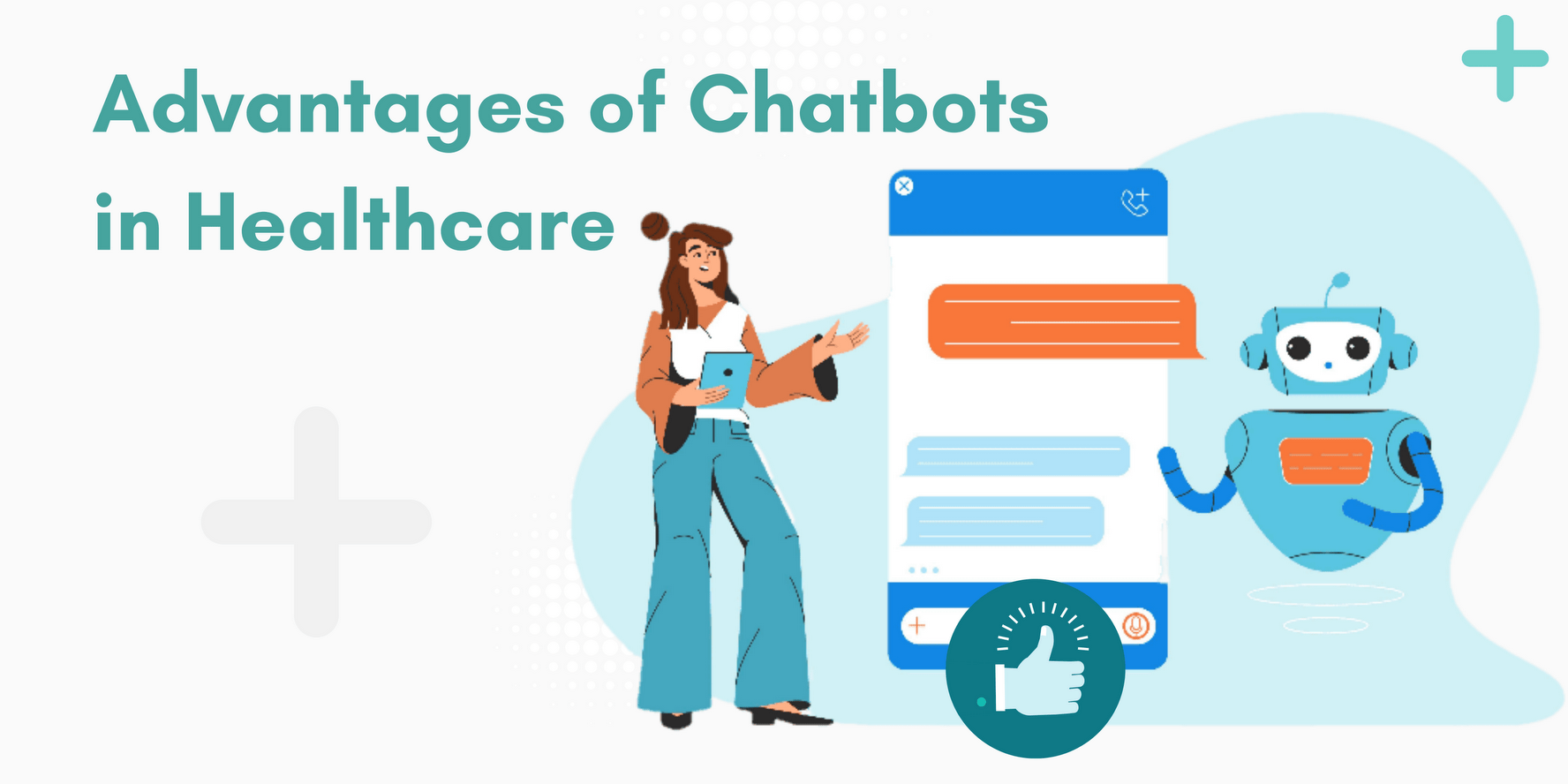Advantages of Chatbots in Healthcare

- Doctors and nurses are not available everywhere. Medical emergencies may occur at any moment and need immediate attention. At any moment, a patient may want support with anything from symptom recognition to surgery planning. Chatbots may be helpful in this situation. They are always available to anybody who needs them.
- Medical chatbots collect information to improve future services by asking questions to patients or users about their experiences. Furthermore, a website’s FAQ section may not be all-inclusive. Thus, a user-friendly chatbot may be able to handle more inquiries and provide instant support.
- During one-to-one treatment, doctors’ ability to roam is so limited. On the other hand, medical chatbots can interact and help a large number of patients at once without compromising on the quality of service. Patients may use chatbots in healthcare in the same ways they’ve always been able to reach out to doctors. Thus, participation rises and medical staff may devote their time and energy efficiently.
- Furthermore, healthcare chatbots can provide doctors or nurses with answers regarding the patient’s health history quickly. For instance, if a patient suddenly rushes to the emergency room during an attack, chatbot technology in healthcare may quickly provide the doctor with information about the patient’s ailments, allergies, check-ups, and other issues.
Thus, there are numerous advantages of incorporating chatbots in healthcare. Let’s see the use cases of chatbots.
Use Cases of Chatbots in Healthcare

Symptom Checking
A growing number of chatbots are being used to examine patients’ symptoms and analyze their medical status before they go to the hospital. To better understand a patient’s needs, developers are turning to natural language processing (NLP)-based chatbots.
More precise answers are essential when analyzing the symptoms, and NLP can assist with that. The chatbots may then utilize this data to help patients narrow down the possible diagnoses to the ones causing their symptoms. A patient may use such an interactive bot and the information it delivers to determine the appropriate degree of therapy and medicine.
Providing medical info
Healthcare Chatbots are trained with massive amounts of healthcare data, such as symptoms, diagnoses, signs, and possible treatments.
This training may lead to healthcare chatbots that are capable of understanding user inquiries and providing responses based on specified labels in the training data. Therefore, users don’t have to visit a doctor regularly for regular health and medication advice.
Scheduling Appointments
Scheduling appointments is one of the healthcare industry’s most common practices. However, sometimes patients find it hard to utilize an app to schedule their visit. For example, the app slows down or lengthy form filling, etc.
Chatbots have been shown to be an excellent option in this use case. Chatbots allow users to easily interact with the service. Appointments with doctors may be scheduled more efficiently with few answers.
To further aid doctors with patient visits and follow-up appointment tracking, chatbots may be built to interface with customer relationship management systems (CRM). Chatbots in healthcare can collect and handle payments, speeding up the process even further.
Gathering Patient Data
Another common use of chatbots in healthcare is in the collection of patient data. To acquire necessary information, healthcare chatbots might ask the patient basic questions.
For example, name, phone number, current doctor, locality, medical history and insurance information. Furthermore, increased cloud storage facilitates patient admission, symptom monitoring, payments, direct patient communication, and record keeping.
Furthermore, when a user needs to check their insurance coverage, submit a claim, or monitor its progress, a healthcare chatbot makes this process much simpler. They have ready access to patient information that allows them to make pre-authorizing billing payments.
Automatic Refills for Medications
Prescription refills and other medical activities are easier and faster for patients if handled by chatbots. Patients may save the trouble of making a doctor’s appointment or making a trip to the pharmacy by utilizing a chatbot to obtain a refill on their prescriptions.
Patients with long-term illnesses who need frequent refills on their medications may benefit greatly from this. While certain prescriptions may be renewed via a chatbot, it is still recommended that people check in with their doctors to make sure they are taking the right medications.
Conclusion
Lastly, chatbots may change the face of healthcare forever by making it more accessible, efficient, and convenient for patients. By answering patients’ questions, setting up appointments, and performing activities like refilling prescriptions, they may assist patients in taking charge of their health and well-being.
In case, you want to build a healthcare chatbot for your hospital our Health tech experts are always there to help you. Book a FREE consultation with us.
FAQs
What is a chatbot in healthcare?
What are the advantages of using chatbots in healthcare?
Which are the important features that chatbots should have?
Give examples of healthcare chatbots.
What is the most advanced chatbot ever?
Ravi Bhojani is the Chief Marketing Officer (CMO) at Alian Software, where he spearheads the company’s marketing strategies and drives its brand presence in the competitive IT services landscape. With over a decade of experience in the technology and marketing sectors, Ravi has consistently demonstrated his ability to blend innovative marketing techniques with deep industry knowledge to deliver outstanding results.